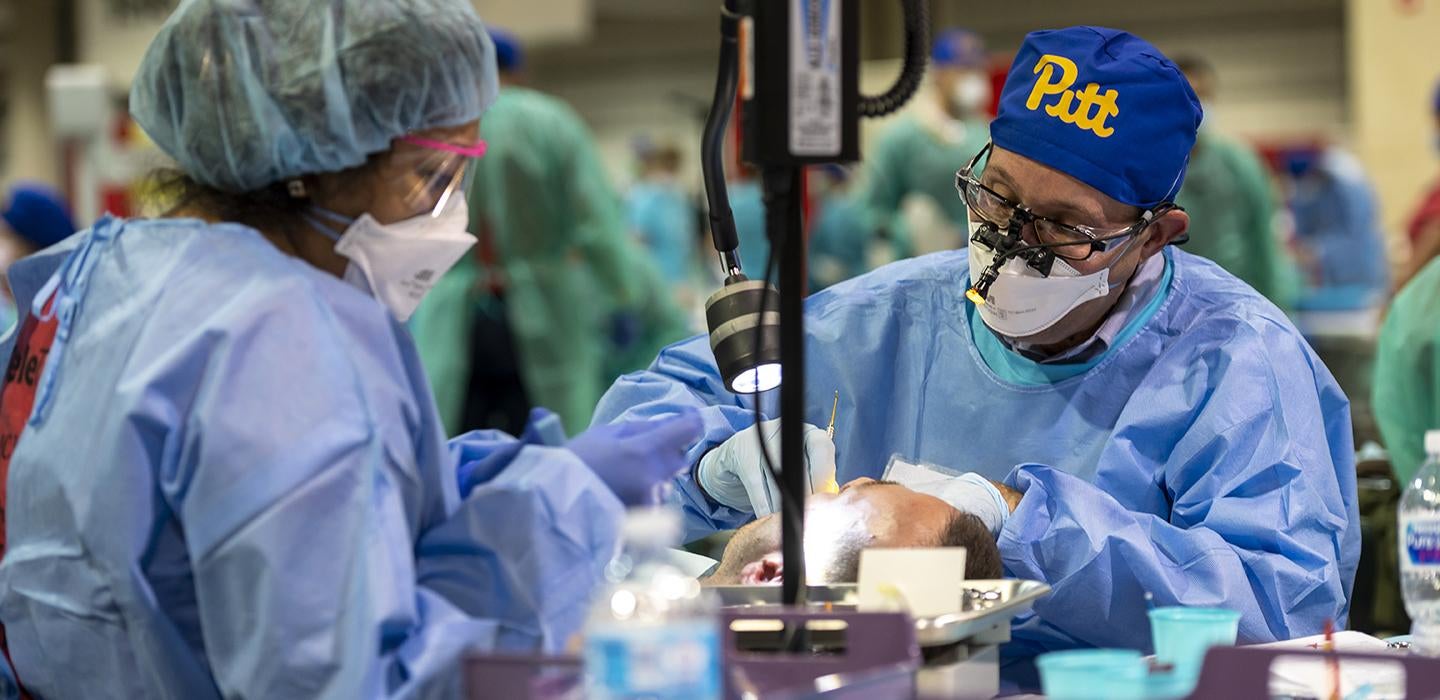
Subscribe to Pittwire Today
Get the most interesting and important stories from the University of Pittsburgh.For decades, opioid pain relievers have been routinely prescribed for dental procedures, including the surgical extraction of wisdom teeth — often a teenager’s first exposure to opioids. The increased use of opioids has contributed to the opioid epidemic and drug overdose deaths, which saw a significant increase during the COVID-19 pandemic, according to recent provisional data released by the Centers for Disease Control and Prevention.
To help reverse this trend, the University of Pittsburgh School of Dental Medicine today announced The Costello Pain Care Pledge, a commitment toward responsible pain management to be adopted by health care providers of all kinds.
“At Pitt Dental Medicine, we are committed to combatting the opioid crisis,” said Bernard J. Costello, dean of Pitt’s School of Dental Medicine and author of the pledge. “The Costello Pledge was developed to reinforce our own accountability in prescribing pain medications, and we invite all prescribers throughout the medical and dental community to demonstrate their devotion to these same principles in their own patients’ care. We believe it’s simply a matter of holding ourselves to the highest ethical standards and staying true to our responsibilities as health care professionals.”
In 2019, Pitt Dental Medicine became the first dental school in the nation to implement the opioid-free pain management guidelines for the vast majority of procedures performed in all of its clinics.
The Costello Pledge is also already a part of student and resident training curricula at Pitt and will now be included in the school’s annual White Coat Ceremony, beginning Jan. 7, 2022.
Together with The Costello Guidelines for Prescribing Pain Medications, The Costello Pledge represents an important change in the way health care providers anywhere can prudently manage pain following a procedure, or as part of ongoing treatment.
The guidelines are based on evidence that alternative medications generally work as well or even better than opioids for managing pain after dental work, without the side effects of nausea, vomiting, constipation and potential for misuse.
Among other factors, the guidelines take into account the severity, duration and individual risk considerations when prescribing pain medications for a particular person following various dental procedures.
“In the three years since implementing the guidelines, we have seen a significant reduction in opioid prescriptions by our dentists with no deleterious effects for our patients,” said Costello. “It is even more impressive since this occurred at the height of the pandemic when telemedicine and medications were virtually the only tools at our disposal.”
Providers who take The Costello Pledge demonstrate their commitment to carefully and responsibly weigh such criteria and consciously avoid the preferential use of addictive medications whenever possible, based upon the most current wisdom and principles.
Are you a health care professional? Take the pledge today.
— Micaela Corn


